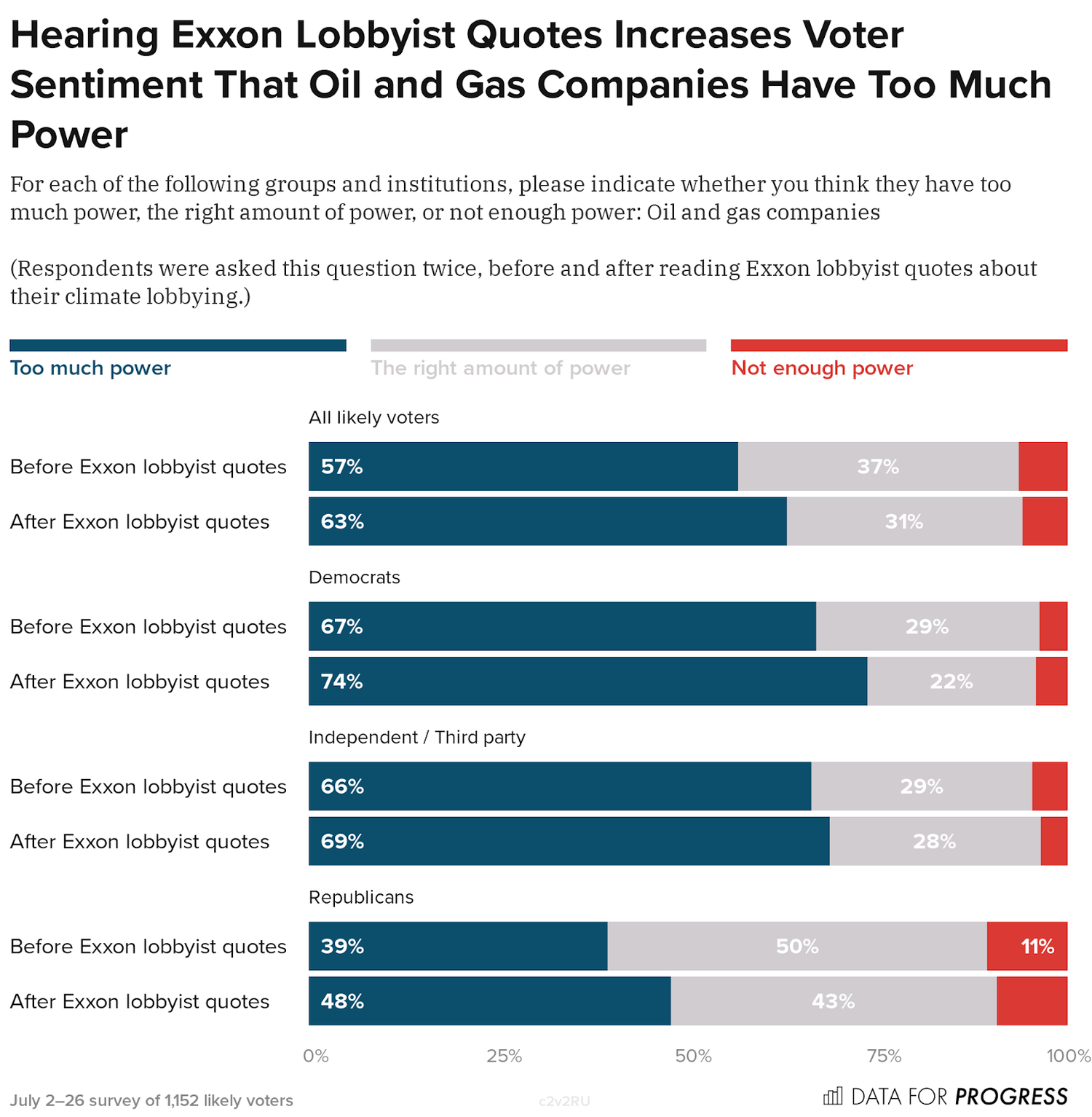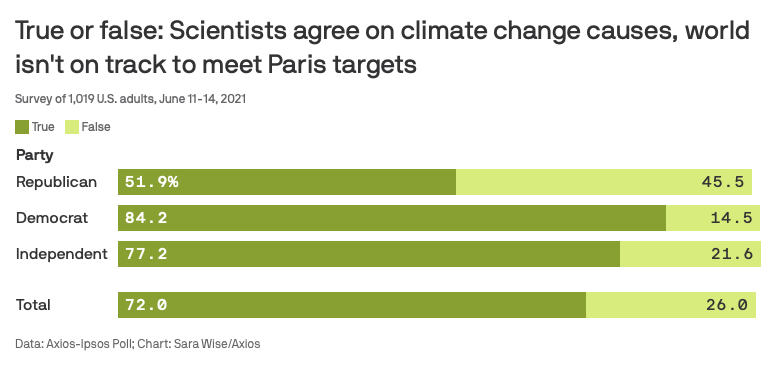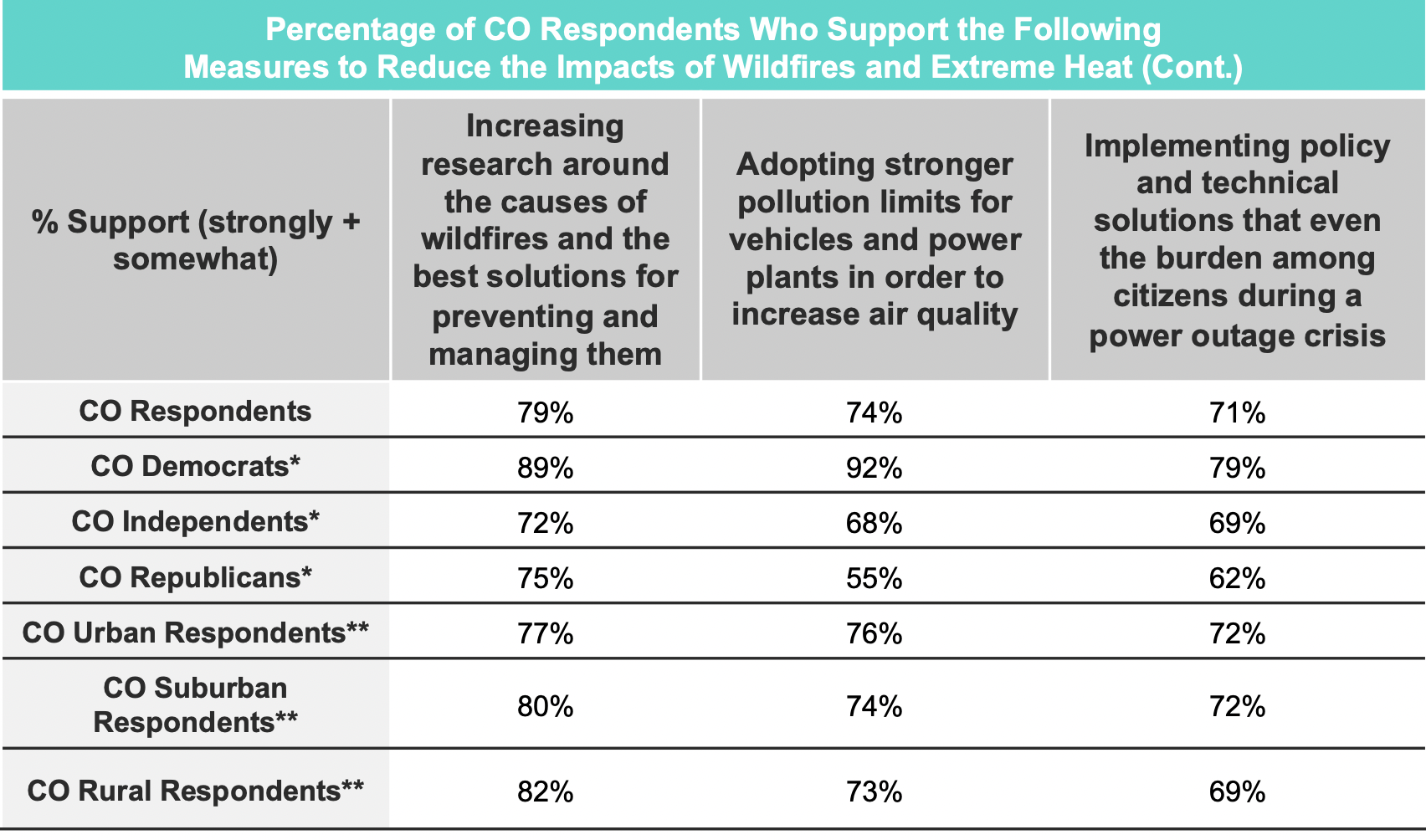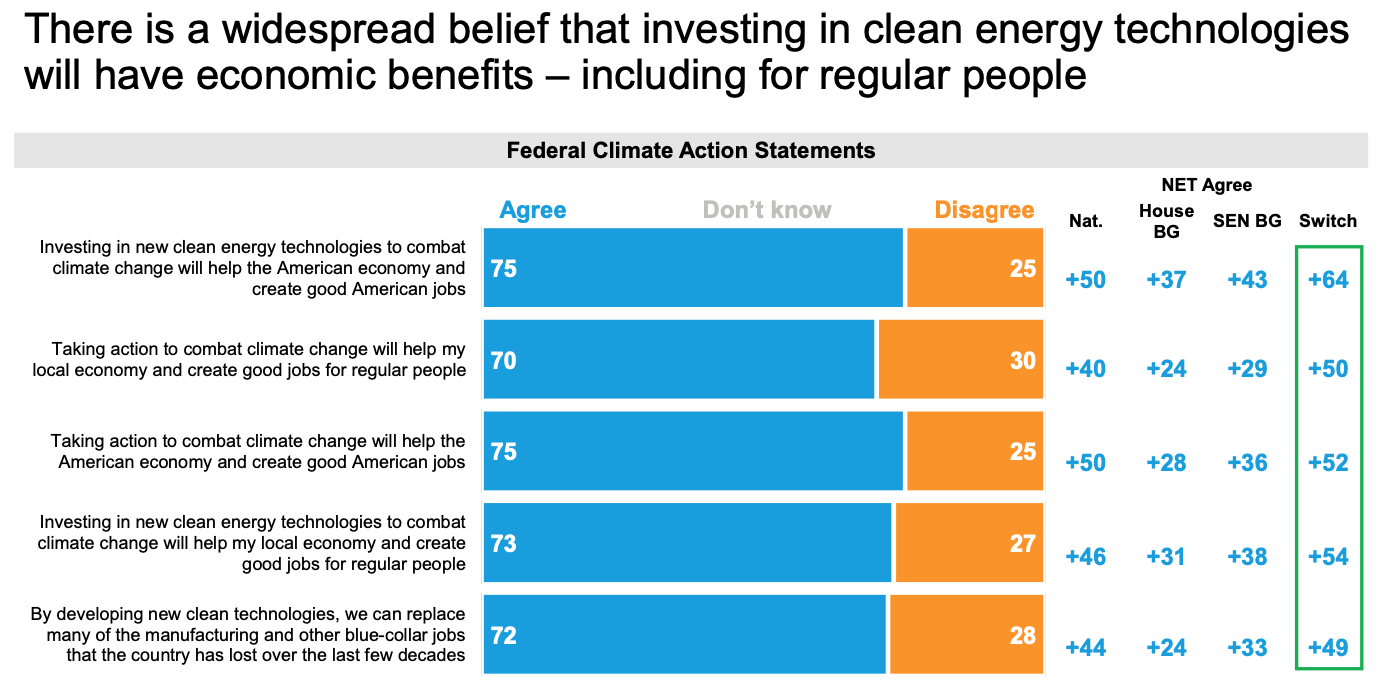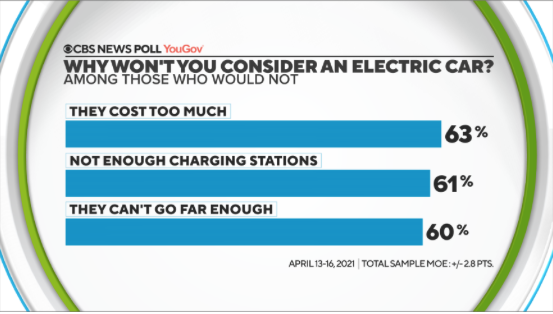Resources
Search below for resources covering the intersection of climate engagement, social science and data analytics.
RESULTS
Study: Extreme weather may not lead to increased support for climate action
Hot, dry days are more likely to affect Americans’ climate change beliefs than other types of extreme weather. The data show that Democrats and Republicans living in the same states or counties — or even sharing the same roof — can be a world apart when it comes to perceived experience with global warming. While 60% of Democrats nationally say they have personally experienced global warming, only 22% of Republicans agree. Only one type of weather has affected Americans’ beliefs that they had experienced global warming: hot, dry days. When hot, dry days persist for a long period of time, drought conditions arise. In particular, the intense heat and lack of rainfall that affected Texas and the Midwest in 2011, and which turned into a severe drought, stands out clearly in the study’s climate data. This drought was also associated with extreme wildfires in Texas, which burned about 4 million acres that year, doubling the previous record.
Memo: Montana Voters Support the Clean Energy Standard
A June 2021 poll found that 57% of Montana voters support the Biden Administration’s American Jobs Plan creating a national path to achieving 100 percent clean electricity by 2035. However, the support is very polarized: 95% of Democrats said they’re supportive, along with 53% of Independents, but just 32% of Republicans. Voters showed similar levels of support when asked about green investments, jobs, and consumer incentives associated with the American Jobs Plan.
Oil and Gas Companies Have Too Much Power
Many Americans believe that the oil and gas industry has too much power and influence in Washington, with support coming from both sides of the aisle. Two-thirds (67%) of Democrats believe the industry has too much power, while 39% of Republicans agree that they have too much power. When presented with quotes from an Exxon lobbyist that highlights the influence Exxon has in the capital, however, these percentages increase to 74% and 48% respectively. Finally, this research finds that when “oil and gas companies” is used, rather than “fossil fuel companies,” the percentage who believe that the industry has too much power increases. Advocates interested in highlighting these finding should consider focusing on the bipartisan distrust in the oil and industry, and use “oil and gas” language rather than “fossil fuel” language.
Poll: America catches up with climate science
- 70% of respondents to a recent U.S. survey are aware of the scientific consensus that climate change is largely caused by people, and that the world isn't on track to reach the temperature reduction targets of the Paris climate agreement -- suggesting Americans' understanding of climate change has increased in recent years, and particularly over the last five years.
- Republicans had the lowest share of correct answers, but a slight majority (52%) were aware of both the scientific consensus and the reality that the world hasn't made enough progress toward the Paris targets.
- The poll found some significant demographic differences:
- 80% of people with college degrees or higher answering the question correctly, compared to 73% of people with some college and 65% of those with a high school degree or less.
- 77% of urban respondents and 73% of suburban respondents answered the question correctly, compared to 61% of rural respondents.
- The poll found no significant differences by age, income or region of the country.
Poll: Perceptions of Wildfires and Extreme Heat Among Coloradans
A bipartisan majorities of Colorado respondents support a wide array of measures to prevent wildfires, including expanding energy efficiency programs and increasing funding for the U.S. forest service. CO respondents believe in the importance of building resilience to wildfires through better forest management across all levels of government, and among private landowners.
GenGND Conversation with Kaniela Ing
Hawaiian organizer and strategist Kaniela Ing describes his theory of politics in this podcast episode. Kaniela is the Climate Justice Director with People’s Action, former state legislator, and former candidate for U.S. Congress. He argues that building power only happens through organizing, and insider lobbying only works to “wield” power, even though traditional advocacy organizations often view power only through lobbying. Kaniela says that growing up in a working-class, conservative household showed him that progressive organizers need to be understanding and empathetic and can win working-class Republicans over to progressive causes. He also describes (harmful) capitalist, colonial influences on Hawaiian local economies.
Memo: Voters Support Investments in Natural Climate Solutions
A May 2021 poll found high support for a Climate Conservation Corps and medium support for nature-based climate solutions. Among likely voters surveyed, 83% of Democrats, 67% of Independents, and even 50% of Republicans support “government investments in a new “Climate Conservation Corps.” 80% of Democrats, 59% of Independents, and 41% of Republicans support “ocean climate action, which is harnessing the natural ability of the ocean to fight climate change.” Voters showed similar levels of support for “nature-based solutions to climate change.”
Poll: Floridians want federal infrastructure plan to deal with climate change
Three-quarters of Florida respondents support funding “natural infrastructure” (solutions to reduce flood risk, such as restored beaches, wetlands and marshes) as part of the American Jobs Plan. Natural infrastructure solutions were supported by 86% of respondents, including 82% of independents, 81% of Republicans, 87% of coastal respondents and 88% of inland respondents. 89% of respondents supported preventive measures to reduce the impact of natural disasters before they occur. There was little divide among rural and suburban respondents. 85% of suburban respondents supported preventative measures, compared to 84% of rural respondents.
Poll: Investing in American Clean Energy to Build the Industries of the Future
Key findings of a survey (phone and online) of US voters, with oversamples in key states include:
- Voters across the political spectrum overwhelmingly support government investments in clean energy technologies in order to rebuild the economy (77%), create good jobs (76%), and eliminate the carbon emissions that cause climate change (75%).
- There's a widespread belief (75%) that investing in clean energy technologies will have economic benefits – including for "regular people."
- And also that by developing new clean technologies, we can replace many of the manufacturing and other blue-collar jobs that the country has lost over the last few decades (72%)
- Strong support for various approaches to boost and develop specific clean energy technologies such as clean steel and cement, clean jet fuels, and energy storage and transmission.
- Voters support investing $75 billion in clean energy tech RD&D as part of the upcoming infrastructure bill.
Poll: What drives views on electric cars?
- Americans' views on whether they would buy an electric car are split relatively evenly, with 30% of respondents saying they "would consider it," 33% saying they "might consider it," and 37% saying they would not consider it.
- When asked why they would not consider buying an electric car, top answers people gave were they feeling like electrics cars "cost too much" (63%), "can't go far enough on a charge" (60%), and that there aren't enough charging stations on the road (61%).
- Partisanship also appears to play a role, with respondents who identify as Democrats a lot more likely to at least say they'd buy an electric car than those who identify as Republicans, regardless of whether they live in rural, urban, or suburban areas.
- 64% think recent announcements from car makers that they are shifting to making mostly (or all) electric cars is a "good idea."
- While many more people (41%) think U.S. policy should encourage people to buy electric cars than to buy gasoline cars (11%), a plurality of respondents (4*%) believe the U.S. policy should "not take a position."
Pagination
- Previous page
- Page 3
- Next page

